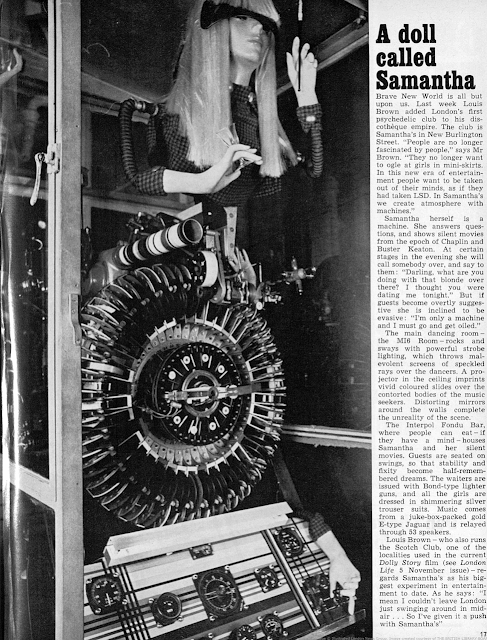 |
| London Life cover, 31 December 1966 |
London Life was a mid-1960s what's on magazine that for a little while replaced the Tatler to reflect a shift away from conservative posho style guide towards a more socially democratic swingin' London - tellingly by the end of the 1960s it had reverted to its former name and to being a conservative posho etc.
'Discotheques' were included in the listings, still quite a new phenomenon in UK so with the helpful explanation that these were 'Informal nightclubs and restaurants with dancing, usually to gramophone records. Some discothèques feature musicians from time to time'. Most of these don't sound too appetising, a lot of gambling and no doubt overpriced drinks (overpriced for the time - a goldfinger cocktail at the Hilton for 35p sounds very reasonable now!). Still wouldn't mind a time machine to check out the Flamingo or to see Francoise Hardy at the Savoy in January 1966.
 |
| London Life, 29 January 1966 |
And what of Samantha's in New Burlington Street, described in 1966 as 'London's first psychedelic club' promising to 'create atmosphere with machines' for people who 'want to be taken out of their minds as if they had taken LSD'. All with a talking dummy called Samantha and a dancefloor with 'powerful strobe lighting, which throws malevolent screens of speckled rays over the dancers' while 'a projector in the ceiling imprints vivid coloured slides over the contorted bodies of the music seekers'.
 |
| London Life, 12 November 1966 |
